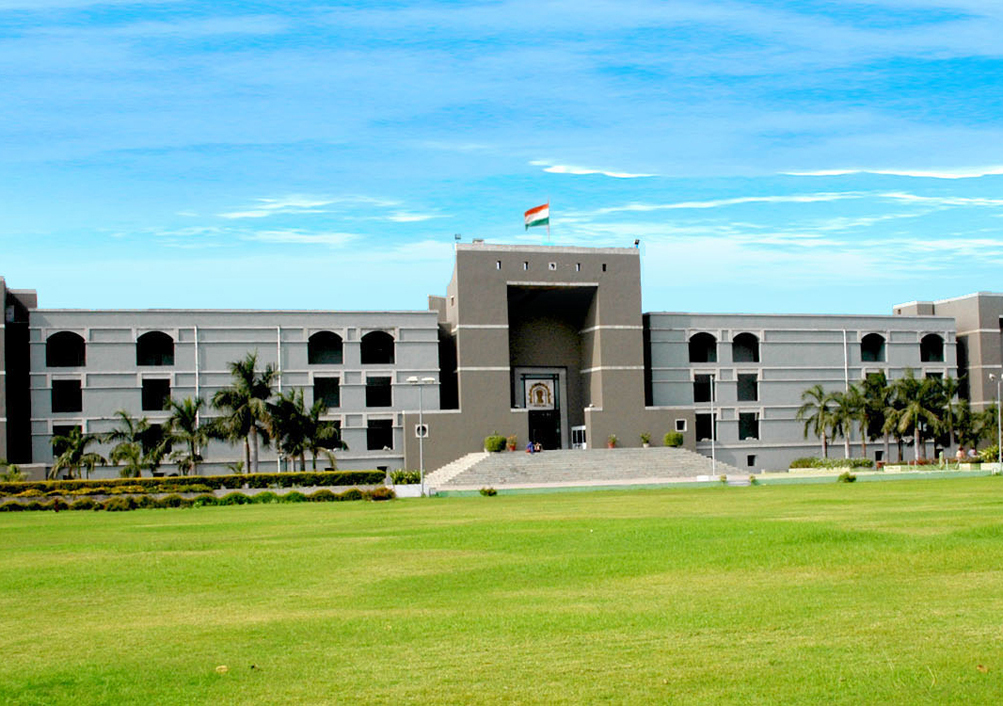Gujarat Cooperative Societies (Amendment) Act, 2019, discriminating Sugar factories, declared as ultra vires to Article 14 of Constitution: Gujarat HC

Read Judgment: Pravinsinh Indrasinh Mahida vs. State of Gujarat
Pankaj Bajpai
Ahmedabad, August 30, 2021: The Gujarat High Court has declared the Gujarat Cooperative Societies (Amendment) Act, 2019, as ultra vires to Article 14 of the Constitution of India.
The Amendment Act had deleted the Sugar factories from the list of the specified cooperative societies, calling it to be discriminatory and failing to disclose the object which could be termed as reasonable or in public interest.
While striking down such amendment as manifestly arbitrary, a Division Bench of Chief Justice Vikram Nath and Justice J.B. Pardiwala observed that the differentiation pointed out by the State has no nexus with the object sought to be achieved.
The classification in the present case between the federal and primary societies on the ground of administrative exigency and saving money could be termed as absurd, unreasonable and not in public interest, added the Bench.
The cooperative sugar factories of which the writ applicants are its members are the cooperative societies registered or deemed to be registered under the Gujarat Cooperative Societies Act, 1961.
The writ applicants had come with this writ application pointing out that with a view to wriggle out of the obligation / requirement to delimit the constituency and with a view to see that one voter can cast his vote across all the constituencies, the State Government has enacted the Gujarat Cooperative Societies (Amendment) Act, 2019, by which the Sugar factories came to be deleted from the list of the specified cooperative societies.
It was pleaded that by the deletion of Section 74(C)(1)(v) of the Act 1961 and delimiting the sugar factories by way of the impugned (Amendment) Act, 2019, the independent government officer (Collector) would no longer be conducting the election and the elections may now be held as per the whims and caprice of the respective cooperative societies.
After considering the arguments, Justice Pardiwala said that the argument canvassed on behalf of the State as well as the Federation about the federal societies or primary societies or finance or administrative convenience has no nexus to the object which is sought to be achieved. In fact, the argument of the State leads to a conflict between the object and differentia, which is not permissible.
“We are not at all impressed by the stance of the State that as the Sugar factories are not federal, they have been now kept out of the purview of Section 74C of the Act. The object of the impugned amendment is clearly to save money and overcome the administrative difficulties. This is what the State has said in so many words. The State says that it does not want to spend money behind the election of the Sugar Cooperative and also does not want the administrative staff to be tied up in the election”, observed the Division Bench.
Finding the stance of the State to be mutually destructive, the High Court said that if the stance of the State is that it wanted to remove the Sugar factories because they are primary, as opposed to other being federal, then in that case, the object is the same as the classification.
Justice Pardiwala further went on to observe that the State cannot say that it does not want the Sugar factories and therefore, they are excluded. This cannot be a determining principle.
“If the Government wants to save money and administrative time, then it should consider doing away with Section 74C itself. Why save time and expense in respect of just the Sugar factories? How much expense and time goes in these 13 Sugar societies, as opposed to the remaining which continue to be within the purview of Section 74C? The aforesaid makes the stance of the Government entirely artificial”, observed the Division Bench.
Having regard to the object with which the federal and primary societies were clubbed and put as one class under Section 74C, the High Court said that the onus would shift on the State to show how they are different in relation to the object sought to be achieved, which the State has failed to discharge.
“The fact whether the society may hold the election in a free and fair manner or transparent manner is not relevant because of the salutary provision brought in public interest. On the contrary, Section 74C should have been made more inclusive. It is a remedial measure for the voters. The voters are now being told by the State that they would be left with what the society decides. Why because yours is not a federal society”, observed Justice Pardiwala.
The Division Bench clarified that the classification must be founded on an intelligible differentia, which distinguishes persons or things that are grouped together from others left out of the group and that the differentia must have a rational relation to the object sought to be achieved by the statute.
Justice Pardiwala said that it is true that every differentiation is not discrimination as held in the decision of Samast Gujarat Rajya Mochi Samaj, but at the same time, differentiation must be founded on pertinent and real differences distinguished from irrelevant and artificial ones like the case on hand.
We may not look into the motive of the legislature, but, definitely, the object of the legislation can be looked into, added the High Court.
Sign up for our weekly newsletter to stay up to date on our product, events featured blog, special offer and all of the exciting things that take place here at Legitquest.




Add a Comment